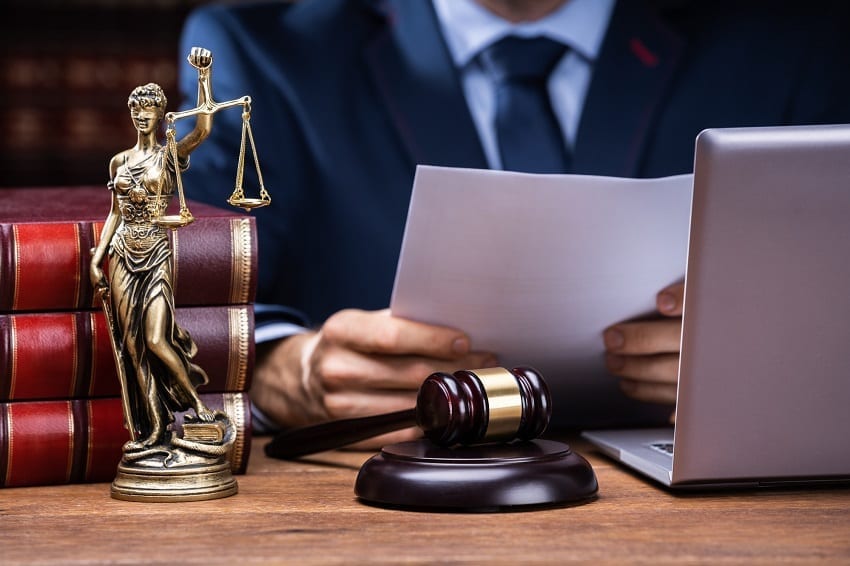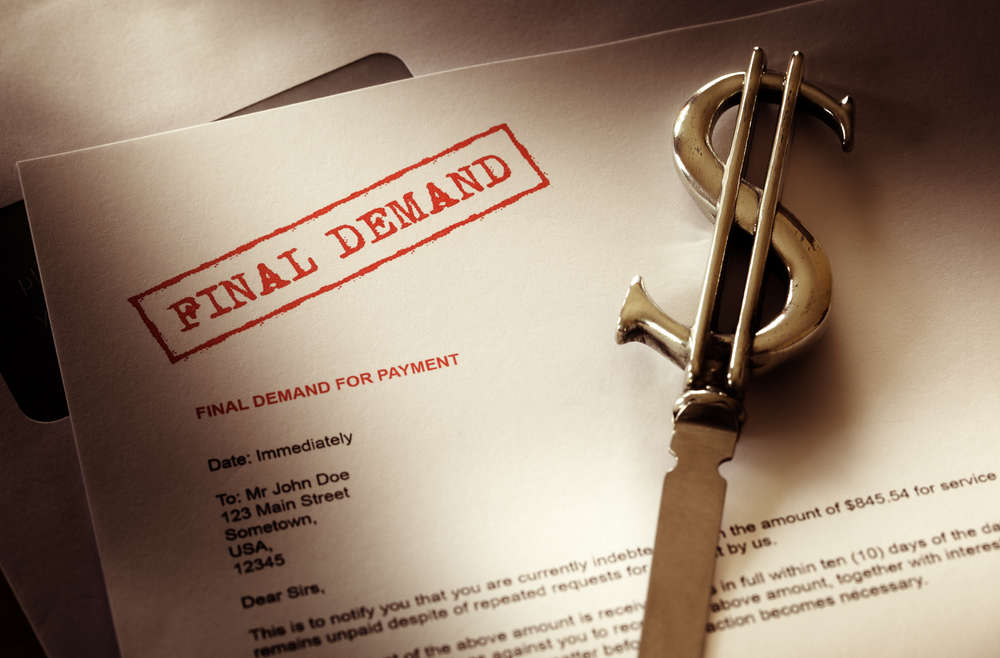NEWS ARTICLE:CLAIM OF DEBTS AND COVID19
NEWS ARTICLE:COVID 19 LEGAL OVERVIEW. CLAIM OF DEBTS AND UNPAID.
The economic consequences of the confinement measures that have been adopted in Spain, leaving only those activities that represent essential services determined by law, have meant a real blow to thousands of entrepreneurs and self-employed people who find it very difficult to survive without obtaining income or public subsidies.
COMMERCIAL DEBT COLLECTION
OTHER ISSUES YOU MAY BE INTERESTED IN
INTEREST – This is a very important issue that is often ignored and is that for those debts arising from commercial or industrial relationships the interest rate to be claimed is higher than that applied when demanding a debt of private law or personal.
Our lawyers in Alicante of Carlos Baño León, experts in debt claims and outstanding payments, inform you that you shouldn’t settle for claiming the legal interest on money.
The Law 3/2004 of 29 December 2004 on measures to combat late payment in business operations (Directive 2000/35/EC of the European Parliament and of the Council of 29 June 2000) established very high interest rates to combat late payment in business operations.
According to the above-mentioned legal text, it will be understood that there is delay and therefore there is a right to the collection of interest once thirty calendar days have passed after the date of goods receipt or provision of the services; unless another term has been established in the contract.
Apart from this interest, the creditor will be entitled to reimbursement of the expenses incurred for such delays.
The interest rate is the one of the European Central Bank which is approved every six months, and they are always considerably higher than the legal interest rate of money, which is applied to debts derived from non-commercial relationships, which is officially approved year after year and published in the BOE (the Spanish Official Gazette).
Carlos Baño León’s lawyers, experts in debt claims, whether they are commercial or service debts, have been applying these high interest rates with great success in their legal claims, to the great satisfaction of our clients. Don’t hesitate to consult us.
Finally, you should be aware that once legal proceedings have been started and the judgment is final, the recognized interests in the judgment from the time you claim the enforcement of the judgment will be increased by two points to those previously recognised and until the debtor pays.

In the development of your industrial, commercial or professional activity you will have found yourself in situations of unpaid bills, promissory notes, bills of exchange, cheques, and other credit titles and you will have had many doubts about how to deal with this situation.
Not always the friendly arrangements you try will give the expected result and you will then find yourself in doubt as to whether or not to entrust the recovery of your debt to a professional.
For many years we have been providing an efficient service for the collection of commercial debts at very competitive prices, by adapting ourselves to your needs.
We work with a previous budget and with a professional service contract, always looking for transparency, certainty and security.

HOW DO WE ACT?
A) PREVIOUS PHASE
After the order is received from the client, we make a friendly requirement with absolute perseverance. This is very important in order to prove the debtor’s willingness to pay before the judge, which will certainly lead to a later order for costs.
In this procedure you are not charged in advance and we establish with you a percentage to be charged by us if the debtor pays.
We will draw up a solvency report if the debt collection process has not been successful, at no cost to you.

B) JUDICIAL PHASE
There are several types of legal proceedings for the claim of debts or unpaid bills that we explain briefly:
1 ) SMALL CLAIMS PROCEEDINGS (Juicio Monitorio): for the claim of a debt through the submission of invoices or any similar document; it consists of a request through the Court in which the defendant has a period of 20 days to oppose or to accept. If the defendant doesn’t answer or agrees, a decision will be issued immediately and will be enforced. If this party opposes, proceedings are continued by the appropriate court according to the amount, i.e. either ordinary proceedings (Juicio Ordinario) or verbal proceedings (Juicio Verbal).
The only disadvantage of this type of legal procedure is that there is no order for costs and therefore our fees are very affordable, to make it easier for the client to choose this legal procedure.
Our advice, however, is to use this procedure only for claims of not very high amount. The success rate of this law firm in these claims is very high.
2) ORDINARY PROCEEDINGS (Juicio Ordinario): The Law establishes the type of claims to be processed through this procedure, always for claims over 6,000 euros.
Proceedings begin with a lawsuit that must be drafted by a Lawyer and signed by the court representative (procurador), which after being submitted to the Court must be previously accepted by the court in order to start its processing.
Once the lawsuit has been accepted, the defendant will be summoned to respond to the lawsuit within 20 working days (weekends and public holidays are not included). Once this period has elapsed and whether or not the defendant has answered the complaint, the Court will establish a preliminary hearing, after which the trial will be held.
As you can see from the many articles and updates on our website, our success rate for our judicial and extrajudicial claims is extremely high.
3) VERBAL PROCEEDINGS (Juicio Verbal): for legal debt claims under 6,000 euros and we indicate you briefly that their processing begins with the admission of the lawsuit and transfer to the other party for a period of 20 working days, so that any possible opposition can be made and once this has been verified, the Court proceeds to schedule a hearing, that is, it fixes a day for the holding of the oral trial and after which the decision is issued.
Our advice is that if you are dealing with small claims, NEVER file this type of lawsuit but go directly to the Small Claims Proceedings (Juicio Monitorio) for the reasons we have already mentioned above.
4) JUICIO EJECUTIVO CAMBIARIO (Summary Judgement): is a brief and quick judicial procedure for the legal claim of bills of exchange, promissory notes, cheques or other enforceable titles, provided that these documents or securities in your possession meet the minimum legal requirements.
The procedure begins with the most important measure of debt’s collection, which is the seizure of the debtor’s assets, notwithstanding that the debtor is given a period of time to make statements in his defence. It should be borne in mind that the grounds for opposition conferred by law to the debtor in this case are minimal and almost all relate to compliance of the formal requirements of the said documents or instruments apart, of course, from the statement of payment.
If you are the bearer or holder of any of these instruments or documents, you have an absolute guarantee of recovering your money, provided of course that your debtor is solvent and has assets that can be seized.
We negotiate with you our fees and payment method.

OTHER MATTERS OF INTEREST
PROOFS.- During the judicial procedure, in the verbal proceedings and the ordinary proceedings, the evidence leading to prove the existence of the debt must be proposed, because this is the main demand or obligation of the claimant before the Court, while the obligation of the claimed party or defendant is to prove the non-existence of the debt, either for its payment or due to any other legal argument.
The procedural regulation of the Verbal and Ordinary proceedings requires that at the time of writing the lawsuit and filing it in the Court, it must be done by providing the relevant proofs: testimony evidence, expert evidence, documentary evidence, etc.
Therefore, in order to present a successful claim in court, it is necessary to provide evidence of the existence of the debt, since this is the time to do so when the claim is filed, being later the possibility of providing evidence limited.
Because of our knowledge and expertise, Carlos Baño León’s debt collection lawyers know that this is a fundamental issue, which is why we never file a legal claim unless it is accompanied by important documentary evidence.
LEGAL FEES.- We don’t want to end this article without mentioning two relevant issues, one of which is that if the client who is going to claim is a commercial company, he will have to pay a legal fee whose amount varies according to the type of procedure; specifically 100 euros in the payment order trial; 300 euros in the ordinary trial and 150 euros in the verbal trial (this expense is reimbursable for costs).
PROCEDURAL COSTS.- The Spanish Procedural Law regulates the order of paying the costs, which are the expenses for the lawyer, the court representative, the expert evidence carried out and other necessary expenses, with the obligation to be paid by the party who finds its pronouncements dismissed; however, in order there is a sentence ordering the payment of costs, it will be necessary a rejection of the claim in its entirety, since if it is only partial, each party will pay its expenses.
In this section, the action of expert lawyers in debt and unpaid claims of Carlos Baño León is of particular importance when carrying out actions prior to the legal claim since it is taken into account by the Court when deciding on costs.
DURATION AND PROCEDURE.– The length of a judicial procedure of debt claim, either by the procedures of verbal proceedings or by the procedures of ordinary proceedings, depends a lot on the court to which the legal claim is assigned and of course, it also depends on the locality where the court is located, given that the working pressure is not the same in some areas or others, nor the more or less rapid functioning of the courts.
PROVISIONAL ENFORCEMENT OF SENTENCE.– Obtaining a favorable judgment in the court of appeal will allow provisional enforcement of the judgment even if the losing party appeals against it, and this is a very important issue since in most cases, this right, makes the losing party to desist from the appeal or to withdraw from it, if this said party has done it when a provisional enforcement is already presented to them, since this implies an advanced compliance of the sentence at the request of the person who asks for it, without the need to provide any type of guarantee.
In fact, our experience of many years makes us affirm with total security that once a favorable judgment is obtained, the easiest thing is to collect immediately as well as the waiver of the one who loses when appealing the judgment.
Carlos Baño León’s expert lawyers in debt and unpaid claims have proven experience in processing provisional enforcement cases, always with success.
This provisional enforcement will consist of carrying out seizures either of bank balances in accounts owned by the debtor, or of records of attachment on properties.
PREVENTIVE INJUNCTION OR PRECAUTIONARY MEASURES.– This is a very interesting point and one that is seen relatively frequently and is that on many occasions there are many times that the economic situation of the debtor can arouse suspicions that will prevent the end of the judicial process, the enforcement of the favorable judgment and it is then that it is allowed by the Procedural Law to request, along with the judicial claim for the amount, the adoption of measures such as the preventive seizure against assets of the defendant, at the beginning of the trial, and this in order to guarantee that at the end of the trial the judgment could be enforced.
The precautionary measure, among others, may consist of a seizure of the debtor’s bank balance or of a record of attachment on properties in the Land Registry.
The Procedural Law normally requires that in order for the judge to rule on this request, he or she must agree to hold a hearing where the parties will meet to discuss if the two requirements of the law are met:
1) The existence of a danger of insolvency during the course of the trial.
2) The presence of a good Law, understood as proceedings with evidence, which allows the judge to understand that the claim made is well founded with regard to the law and that it can prosper without this meaning an advance of the ruling.

SETTLEMENT AGREEMENT.- From the time a legal debt claim is filed to the time the hearing is held, it is possible for the parties to reach an agreement that would be formalized through what is known as “court settlement approval”, and naturally, in this agreement the parties can agree on whatever they wish in accordance with their interests, which will result in the termination of the process.
PROCEDURAL REPRESENTATION.– In the judicial procedures, with the exception of a few occasions, it is required the representation of the interested party in the Court through the figure of a court representative, who is a professional different from the lawyer, to whom he communicates all the rulings and proceedings that interest his client during the legal process, and who immediately sends this information to the Lawyer.
The representation of the Court representative (procurador) is conferred either with a power of attorney or with a power of attorney called apud acta, which implies the appearance of the interested party in the Court appointing the court representative.
You should know that even if the judicial procedure takes place in a town or judicial district different from yours, this power of attorney can be carried out in the courts of your town or judicial district, by means of a procedure of appearance, which you should do in the same place, and after which you will obtain the aforementioned power of attorney or a copy, so that you can send it to your court representative or lawyer.
DO YOU WISH TO MAKE AN ONLINE CONSULTATION?
First inquiry is always free

